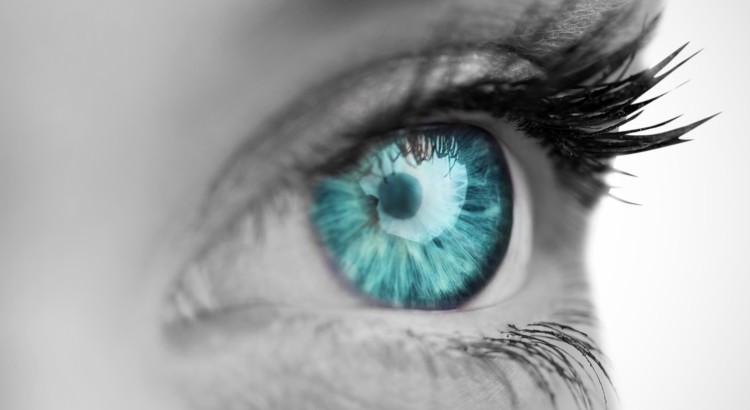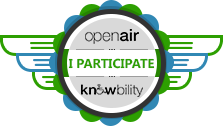I attended about 6 hours of an introductory “clinical skills” course on the vision system and mild traumatic brain injury/concussion issues at the Neuro-Optometric Rehabilitation Association (NORA) Conference here in Austin this weekend.
The extremely knowledgeable teachers presented skills for rehabilitation specialists who are already trained in their discipline as physical therapists, occupational therapists and optometrists. The course was higher-level, multidisciplinary skills for a smooth partnership between optometry, occupational therapy and physical therapy in the hospital setting or in the doctor’s office to improve patients recovery after mild traumatic brain injury and concussion.
More on the course itself and what I learned after I tell you why I wanted to attend.
Increased Motivation for My Rehabilitation after Attending the Conference
After going to the course, Wow! I am even more motivated about this therapy than I was before the conference.
I have already experienced the importance of neuro-optometry in my own long- term successes from neuro-optometric treatment.
And I have been even more motivated around my home exercises after hearing about the successes of a patient named Dr Clarke Elliott on the Diane Rehm Show this summer. Its almost hard to imagine how much that show inspired me.
However, listening to Dr Elliot model his recovery and listening to the expert doctors who refer patients to vision therapy, Drs Greg O’Shanick (Emeritus Medical Director at the Brain Injury Association of America and Director of a Concussion Clinic in Virginia) and Dr Korine Hudson (Sports Medicine at Georgetown University) was very powerful for me.
I want recovery like Dr Elliott has achieved! And, after learning more about his recovery, I know I am on the right path. I am on the right bath because of the work I have already done with neuro-optometric therapy and cognitive therapy. I know intuitively that I just need to do more of what I am doing already with professionals and at home, and I will get there.
As a patient, its one thing for my Doctor to tell me that I can get “full” recovery and its another (even better!) to watch a patient model his or her path and where its led for him/her.
When someone else recovering from brain injury models that they can climb to the next level, it gives me one more piece of confidence that I can too.
You might ask why a patient of neuro-optometry like me wanted to attend a skills conference for professionals?
One of the reasons why (and there are many) are that I know the patient side of neuro-optometry/vision therapy and I wanted to know more about the view from the practitioner side. I know how much its helped me.
Neuro-optometry or vision therapy has been extremely important in my recovery.
Neuro-optometry has played a critical role in my recovery from mild Traumatic Brain Injury/concussion.
And I know neuro-optometry is often overlooked or unidentified even for people with concussion who have persistent symptoms.
In fact, my course teachers said that at their hospital almost 90% percent of their brain injury patients are now concussion patients.
In their hospital, cf those people with concussion who have persistent symptoms, about 80% have neuro-optometric visual issues.
Here’s my engagement with neuro-optometry over the length of my recovery:
- I first learned about vision therapy when my top-notch neurologist told me that he couldn’t help me with some of the issues I began to identify after my own mild traumatic brain injury around remembering about what I read. My neurologist was helping me with understanding that anxiety and depression are part of the territory with an injured brain like mine and he was treating me for headaches. I was surprised to find out from him that addressing reading skills was not in his purview. I admit I didn’t know much about what doctors who practiced neurology did. I just knew he was a specialist and that I thought he could help me with all things that had to do with my brain so that I could return to work and to my life.
- I used my network in Washington DC to find a top-notch optometrist and found an excellent one, Dr Francke OD. Dr Francke gave a monthly talk about neuro-optometry which I attended despite the fog I was in from my injury. While I can say, I was in a fog, I intuitively understood that Dr Franke had a skill set that could help me.
- Dr Francke said he could help me. This was music to my ears. He talked about efficiency and brain processing. He said that my brain was less efficient after my injury and that I was using a lot of my energy trying to get my brain signals to connect again. When Dr Francke pointed it out, I realized I was much more fatigued from doing basic everyday skills than I had been before my injury. And that I needed more sleep after the accident and was often exhausted after what used to be simple tasks, even though I was getting more sleep. Because of my economics background, I understood what a lack of efficiency would mean for my body.
- Compared to the uncertainty that my primary care doctor and my neurologist about treatment and the two year deadline in recovery that they were telling me about my brain’s ability to heal, I was thrilled to hear from Dr Francke’s positive encouragement that my brain could relearn and rewire and that working with my vision was a direct way to rewire the brain. I was excited to learn his tools to get better. I was willing to work hard to achieve recovery in the long term. I understood that tradeoff because of my professional training as a PhD Economist.
- Dr Francke delivered. I did not get to any other appropriate treatment for concussion for years other than vision therapy, so I know that the vision therapy helped me make substantial gains. It also gave me hope. There were tangible things I could do to help myself get gave me tangible things to get better. It gave me a language to think about my brain getting better. And although my brain was exhausted after only a few minutes of eye exercise, Dr Franke worked side by side with me to help me learn to limit my activities so that I would learn how not to over-exhaust myself given my injured brain. Since I was not getting this kind of help from outpatient rehabilitation because my doctors had not prescribed it for me yet, it was crucial that I started learning these skills to help myself, so that things did not get worse for me after my concussion (unintentionally) and that things were beginning to get better!
- Working with Dr Francke, I got functional recovery. I can watch movies again. I have an increased sense of space around me. I have increased awareness about when my cognitive skills work and when I need to rest. I have increased awareness about where I am in space. I can remember what I read now. I have more energy. I understand more about my limitations and how to manage my life so that my life is more meaningful. In fact, Dr Francke taught me so much about my brain and how to manage my new brain and help retrain it, that I cannot even begin to summarize what I learned as I write this blog!
- Later in my recovery, I worked with an Occupational Therapist at Inova Mt Vernon Hospital on the Virginia outskirts of Washington DC, at that time the best rehabilitation hospital in Northern Virginia. Because I was doing so well after years of vision therapy and eventually cognitive rehabilitation with a speech therapist at St Davids Hospital here in Austin, after we moved back to Washington DC area. This time, my top-notch neurologist recommended me to a neuropsychologist who recommended me to a Physical Medicine and Rehabilitation doctor (called PM & R) at Inova Mt Vernon. She understood neuroplasticity and she knew that I could continue to get more recovery with the right help. The Occupational Therapist moved me forward using equipment such as a Dynovision board which athletes use to increase automaticity and accuracy in sports like baseball.
- Roughly three years ago, after over a decade of living with my symptoms from my TBI and slow and steady recovery, I have the visual and cognitive skills that allow me to drive independently again. I am driving and I have my own car. (I wrote about this in an early blog post!)
- And I am currently working with a physical therapist at St Davids Hospital on Neuro-optometry a recent neck injury and another concussion this year shortly after I gave my speech “Welcome to Your New Brain: Lessons from Concussion” at SXSW Interactive Festival.
- I have made big strides with the work I have done with the Physical Therapist at St Davids both in terms of my ability to organize information as well as read and organize space better and increased “automaticity”. More on this later and more on the cardio work we are going.
I have much more to say about the hope and success from neuro-optometric rehabilitation and my excitement after going to the Conference this weekend. I have more data to report from the teachers of the Conference!
I have so much to say that it was incredibly difficult for me with my current cognitive skills to write this blog as they are clearly changing for the better.
And I am able to finally write it today! Yahoo! I will write more next week.
With the New Year, I hope to write blogs two times a month. I also know that with my current cognitive skills I have doctor’s orders not to impose deadlines on myself. So I will figure out by doing, whether I am able to implement that goal and figure out how to scale back that goal so that its doable for now.
And, I will write a “Plan for Success” around those seemingly opposite constraints as I successfully did in 2014. More on where I learned about Plan for Success as well as on my engagement with Neuro-Optometry.



Hi Ms. Forrest, Yale Daily News reporter looking to get in contact. I’m currently working on a story about the changes Ivy League concussion protocol has undergone, and would love to speak with you. If interested, please email me at maya.sweedler@yale.edu. Thanks very much.